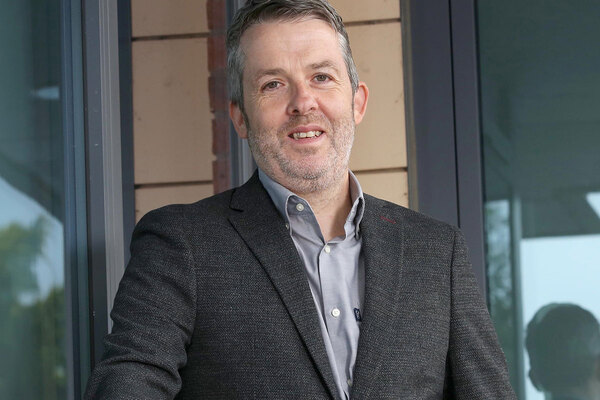‘It was better to be destitute than go home and be killed’
Failed asylum seekers are living in fear on the streets. Charities are their only hope of support. Isn’t it time the government stepped in, asks Beena Nadeem?
Ibrahim* knows all about life as a failed asylum seeker. It’s better than being tortured or killed, but only just, he feels.
Happily for Ibrahim he has now been granted indefinite leave to remain in England and is studying to become an accountant. But for two years between 2004 and 2006, as he challenged an initial decision to reject his asylum claim, he found out all about life below the breadline.
‘They put me in a situation where I had to either go back to my country or be destitute in England,’ he says. ‘I felt it was better to be destitute here than go home and be killed.’
Without any official support Ibrahim survived thanks to the Red Cross. It provided the former teacher from Darfur, who says he fled after he was tortured for encouraging his students to stand up for their rights, with food and £5 a week to spend.
It was a tough life, he says. ‘I used to sleep in [Manchester] Piccadilly train station and sometimes in the subway. Sometimes people who were drunk would abuse me and I would run for my life if they tried to attack me.’
Ibrahim’s experience is not unusual according to the authors of a report published last week by charity Positive Action for Refugees and Asylum Seekers.
It spoke to 56 failed asylum seekers and found that 72 per cent were sleeping rough and 38 per cent had been subject to some form of physical attack on the streets.
Christine Majid, founder of PAFRAS, says the situation is at crisis point. She is in Leeds, standing next to one of the 78 destitute asylum seekers she’s seen in the last two weeks alone. ‘I first met him when he had been sleeping rough,’ she says. ‘He had been attacked racially and physically and he’s typical of what the organisation sees.’
But Nick Scott-Flynn, head of refugee services at the British Red Cross, says that many mainstream homelessness charities are ‘not very refugee-friendly’.
Part of the problem is that six years’ ago the government decided to make it much more difficult for failed asylum seekers to remain in the country, he says. That means they were not allowed to work or access mainstream support.
In reality, rather than seeing more people return home the policy change has seen them ‘seek help from charities such as ours’, he adds.
‘We see this as a human crisis - people are in an emergency and since 2003 we have seen a growth in need.’
What does this mean for charities left to pick up the pieces on the frontline and what can they do to help?
Help up to a point
Jeremy Swain, chief executive of homelessness charity Thames Reach, is one of those caught in the middle. But Mr Swain is as critical of groups such as PAFRAS as he is of the government. The PAFRAS report offers ‘nothing in terms of suggested action charities should take’, he says.
He admits the charity is placed in a difficult position when it comes to dealing with failed asylum seekers who end up on the streets.
‘We can’t help find accommodation but we can help them access legal advice,’ he states. ‘Beyond that there is not much we can do… you have to get to a point where it might be better for some people to return home.’
If a failed asylum seeker continually refuses to seek help the charity may have to ‘bring it to the notice of authorities otherwise we’re colluding against the law of the land’, he adds.
Leslie Morphy, chief executive of homelessness charity Crisis, agrees that charities’ powers are limited and says the government must do something about it.
‘We are calling for an end to the deliberate policy of enforced destitution for failed asylum seekers,’ she says. ‘If the government is to fulfil its commitment to end rough sleeping by 2012, this issue cannot be ignored and solutions must be found.’
Ideally charities would like to be given much more freedom to provide support for asylum seekers, such as food and a place to stay.
Put politics aside
In 2008 the British Red Cross helped more than 10,000 failed asylum seekers through 15 destitution projects across the UK.
It also hands out food vouchers, clothes and advice but can only offer help for up to six weeks.
‘[The government’s policy] is causing a huge amount of human suffering and there is no evidence that this approach has encouraged people to go home,’ Mr Scott-Flynn adds.
He believes the government should take urgent action. In the absence of evidence that the tough approach is working, it should provide people with support and permission to work ‘until they can go home in safety and with dignity’, he adds.
A spokesperson for the UK Border Agency says there is ‘no need’ for asylum seekers to be destitute.
‘We provide measures that ensure that individuals are not without basic essentials,’ he says.
He adds that the asylum system is overseen by independent courts and ‘whenever someone needs our protection we will grant it’.
‘In addition, the government has always been clear that those in the asylum system should not be allowed to work, as this could act as a draw for bogus claims.’
Homelessness charities can and do step in to help failed asylum seekers, but under the current system they can do little more than keep people alive.
Unless the rules change there is little hope of this situation improving. The time has come for the government to shrug aside the political controversy such a move could cause, Mr Scott-Flynn suggests.
‘This isn’t a political issue - it is a humanitarian issue,’ he adds.
In numbers
3,209
the number of refused asylum applications in last quarter of 2008
73 per cent
of failed asylum seekers are sleeping rough
38 per cent
of asylum seekers who are sleeping rough have been physically assaulted
10,000
the number of failed asylum seekers helped by the British Red Cross last year







